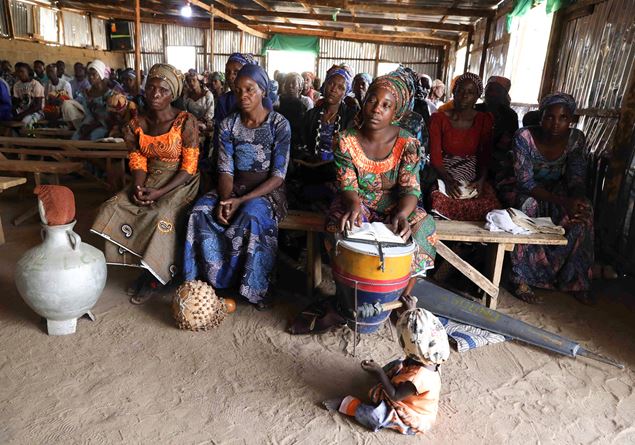From Sudan to Iran, from Pakistan to Burkina Faso, from Yemen to Libya, professing the Christian faith in a large part of the planet is still a danger. In 2025, 380 million Christians worldwide will suffer persecution and discrimination at high levels because of their faith. Up from 365 million a year ago. The new data from the company declares this World watch listthe annual report on persecuted Christians released by the organization international Open doors/Open doorsa global network with 25 national offices that has been working since 1995 to serve persecuted Christians around the world by providing them with material support, emergency aid, literature, training and assistance.
The report, based on data collected from 1 October 2023 to 30 September 2024, draws up a ranking of the top 50 countries where the plague is widest and deepest, divides the states into three categories, high, very high and extreme persecution , presenting an information sheet for each individual country in which it is explained what forms of persecution and discrimination Christians suffer, how these are experienced by women and men, how the problem has evolved over time, who is most vulnerable.
In 2024, the deadliest country for Christians was Nigeria, where 3,100 Christians were killed out of a total of 4,476. Two other African countries follow, the Central African Republic with 492 victims and the Democratic Republic of Congo where 355 people died. Nigeria also confirms itself as the state in which the highest number of Christians were kidnapped last year: 2,830 out of a total of 3,775. In this country, where Christianity is the religion professed by around half the population (the other half is Islamic), Christians are concentrated in the southern states, Muslims in the north. The extreme violence against Christians – explains the report – is linked to targeted attacks by jihadist groups, including Fulani fighters, Boko Haram and ISWAP (Islamic State West Africa Province). In reality, the religious element is closely connected to the clash between Fulani herdsmen and farmers, mainly Christian, over the grabbing of land.
While once upon a time the persecutions were limited to the northern regions, where the sharia ((Islamic law) and Christians are treated like second-class citizens, now they have also spread to southern areas. It should be underlined that the Nigerian Constitution establishes the equality of all religions before the State and religious freedom. But the Government is not capable of defending Christians from attacks and violence by fueling the actions of militant groups.
In the World watch list of Open Doors, Nigeria ranks seventh this year. Leading the list is, once again, North Korea, the country where “if your Christian faith is discovered, you could be killed immediately”. In the Democratic People’s Republic of Korea, a country crushed by an oppressive dictatorship based on state atheism and the cult of the Kim dynasty, it is estimated that around 400 thousand Christians live – out of a population of around 26 million inhabitants – forced to hide and profess in secret their faith, taking very high risks. It is forbidden to gather for prayer or worship, ecclesial life does not exist. Those who are discovered professing the Christian faith, if they are not killed, are deported to a labor camp and condemned to years of forced labor where they will most likely not be able to survive.
In second place World watch list places again this year Somalia, where the Islamist militant group al Shabab controls large areas, “imposes a rigorous form of sharia and is committed to eradicating Christianity from the nation”, maintaining a climate of fear and intimidation. Even in this country, the report underlines, “following Jesus is a question of life and death”. They appear in the list of 50 countries Afghanistan, Saudi Arabia, Myanmar, Mali, China. And again, Mozambique, Egypt, Qatar, Türkiye. Latin America is no exception: in particular Nicaragua, where Daniel Ortega’s government is trying to crumble the Catholic Church and numerous priests and religious have been forcibly removed from the country or have had to choose the path of exile. It should be remembered that last November 13 the president of the Episcopal Conference of Nicaragua, Monsignor Carlos Enrique Herrera Gutiérrez, was sent into exile in Guatemala, the third bishop to be exiled by the Nicaraguan authorities, after Monsignor Rolando José Álvarez Lagos and Monsignor Isidoro del Carmen Mora Ortega.
And then Colombia, where the peace agreement signed in Havana in 2016 by the government and rebel guerrillas of the Revolutionary Armed Forces of Colombia (FARC), to put an end to the long and bloody civil conflict, has in fact proven to be very fragile: in areas controlled by armed gangs linked to drug trafficking cartels, being Christian – and in particular ecclesiastical leaders – is often still a danger, if perceived as figures who counter the activities of the cartels, supporting and educating young people to free them from drug trafficking and criminal networks.
(Reuters photo: A religious function in Chibok, Nigeria, in 2024)








